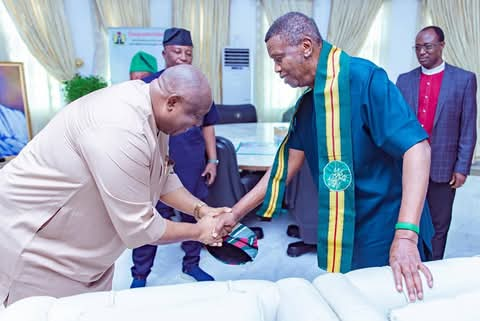NIPR Holds Citizens’ Conversation on Integration, Peace and Security on November 16
By Ralph Madugu
Ahead of its citizens’ summit towards national integration, peace and security, the North-Central zone of the Nigerian Institute of Public Relations (NIPR) held a press conference to create awareness and enlighten Nigerians on the challenge of leadership and under-development.
Addressing journalists in Jos, Barr. Haroun Audu, a member of National Governing Council of NIPR and Chairman, North Central Zone Planning Committee of the summit, disclosed that an NIPR research discovered that 70 per cent of Nigerians, especially youths and women were short changed and millions neglected, mainly in rural communities in terms of governance, hence the need for efforts to get these group integrated into government policies and programmes.
He said: “The Governing Council of Nigerian Institute of Public Relations conducted a study in the difficult period of the covid-19 lockdowns up unto early this year. This study was informed by a number of factors but two key factors were the difficulties that the covid-19 pandemic has unleashed on Nigerians whether socially, economical and so on. And also the fact that the security challenges had started to become intractable.
“And this study yielded a number of results. One of which, fundamentally, was highlighted that Nigerians across board were actually interested in living together in peace and harmony. This study also established that the issues of security and the failings that are playing out were better understood and addressed by a conversation that was rooted in mutual understanding.
“And the NIPR being the body that practices and advocates for good relationships, mutual goodwill, forging understanding, advocating for good society, thought it upon itself to come up with a platform that would drive nation building and so the NIPR Governing Council came up with what is known as the ‘citizens’ summit for national integration, peace and security.’
He explained that the summit was aimed at addressing three critical areas, adding that Nigerians had become so “disoriented that rather than having a conversation, Nigerians were shouting at each other about our common challenges, our respective and local challenges.

“We have become as it were, enemies in a conversation about issues that actually, when you dig deep down, you will find that we share the same common problems. So, national integration became a key focus.
“But also peace. We found out that there was no way you can have a conversation about peace and peaceful co-existence when individuals were buried in their corners and having a shouting match about the issues of this country. So, we were not having a conversation. We were shouting at each other as a country.
“Thirdly, security. It has become very clear in our study that the tendency for citizens to sit back and identify government as the source of failure. The truth of the matter is that in a constitutional democracy, citizens are part of the government. And the failing in security will actually be speaking to the failings that each and every one of us as members of the citizenry ought to play a role to ensure that we mitigate the issues.
“We decided that the NIPR would midwife and execute this summit. It is important that this summit takes place for a number of reasons.
“The idea is that we want a citizen’s driven conversation that will focus on solutions to our problems and because the NIPR is professionally empowered to deliver its mandate as public relations practitioners, the end result of the summit will be a continuity of actions.
“This country does not have a poverty of activities and initiatives. One that readily comes to mind in the recent past is the National Conference. But what became of the National conference? This country has suffered from the poverty of implementation and execution of policies.
“The NIPR determines to first of all, mobilize and harness the verse pool of human-material resource with a stakeholder group spanning about sixty organizations in this country. These entities and platforms represents a cross section of this country.”
He added that the end result of the summit would be a continuity of action. “The summit is not a one-day affair. The summit will take place and NIPR will orchestrate a sustainability activity that is driven by advocacy,” he stated.





Post Comment